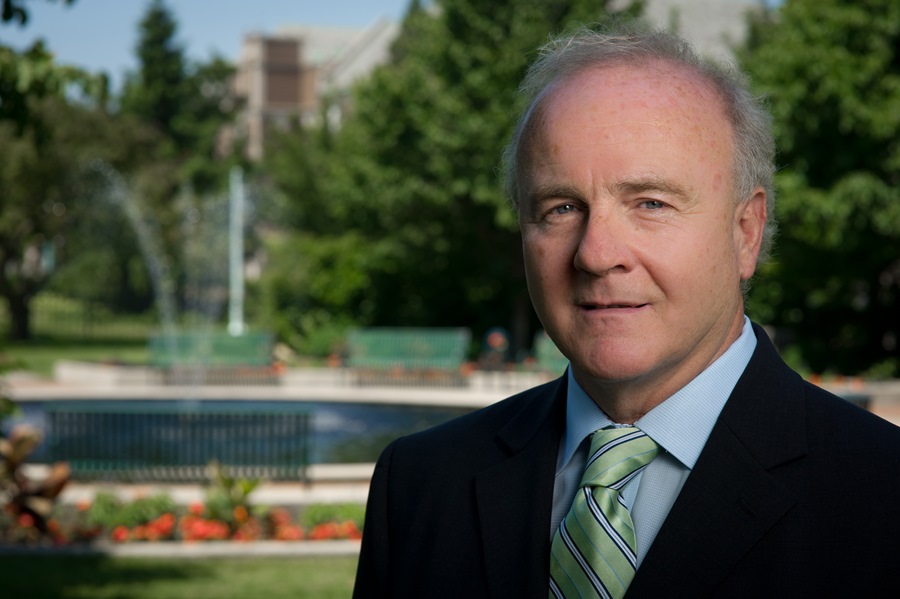People
Michael Rush, Director of Broad Art Museum and Former Rose Art Museum Director, Is Dead
Rush defended the Rose Art Museum against a sell-off attempt.

Photo G.L. Kohuth, MSU.
Rush defended the Rose Art Museum against a sell-off attempt.

Brian Boucher

Michael Rush, the director of the Eli and Edythe Broad Art Museum at Michigan State University, has died from pancreatic cancer. Rush had been director at the Broad since 2010 and oversaw the completion of the Zaha Hadid building, which opened in November 2012. Rush was 66.
“He was a leader,” Jill Snyder, director of the Cleveland Museum of Contemporary Art, told artnet News by phone. “He was courageous and took risks. He was also a deeply moral person and had a strong spiritual orientation that brought him deeper into the belief that art really connected us to our deepest humanity.”
Rush was ordained as a Jesuit priest in the 1970s before quitting the ministry to make a career as a writer, curator and then art museum director. But his reverence for and belief in the power of symbolic objects and images never diminished.
Born in 1949, Rush was director, from 2005 to 2009, of the Rose Art Museum at Brandeis University, in Waltham, Massachusetts, when the university leadership attempted to sell off the collection to close holes in the university’s budget. He had served previously as founding director of the Palm Beach Institute of Contemporary Art and had lectured internationally. His curatorial projects earned prizes from the International Association of Art Critics.
He was the co-founder, with Snyder, of the Contemporary Art Museum Directors Association (CAMD), which annually convened directors of small museums.
“We grew up together as museum directors,” Snyder said. When she was director at the Aldrich Museum in Connecticut, he was at the Palm Beach ICA, and the two conceived of CAMD. Other members include Adam Lerner of the Denver Museum of Contemporary Art, Irene Hofmann of SITE Santa Fe, and Mary Ceruti, of SculptureCenter, New York.
“It was an intimate, non-hierarchical group of colleagues in the niche industry of midsize contemporary art museums, which were then not eligible for membership in the American Association of Museum Directors. It has been a profoundly important support group. The friendships born out of that organization are a real legacy. When I saw him last year, he put his arm around me and said, ‘This is our child.’ He had a great sense of pride and tenderness in having developed this group.”
Rush was also a writer and critic, with a focus on film, video, and performance. Thames and Hudson published his books New Media in Late 20th-Century Art, Video Art, and New Media in Art. He also wrote for publications including Art in America.
CORRECTION: An earlier version of this article misstated the year of Rush’s birth.